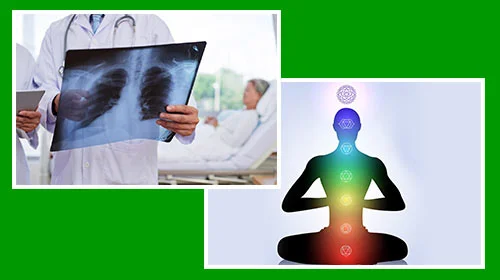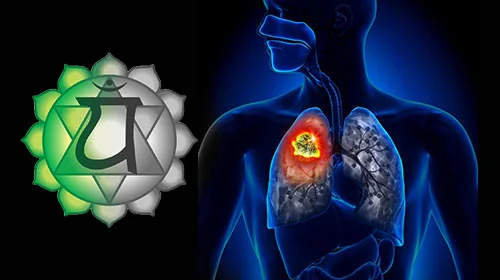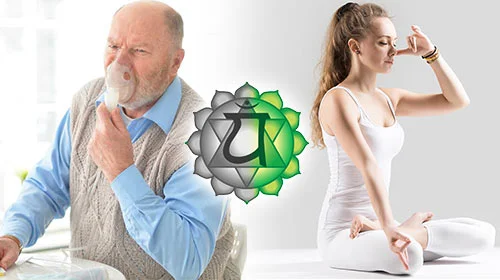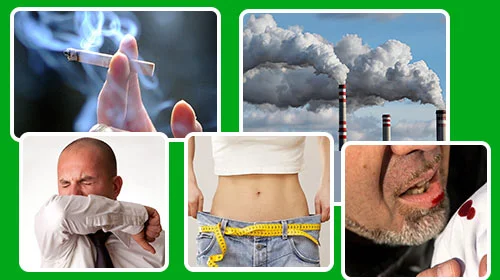Lung Cancer
- Home
- /
- Lung Cancer

Lung cancer, regularly known as lung carcinoma because it accounts for around 98–99 percent of all lung malignancies, is a malignant lung tumor characterized by uncontrolled cell proliferation in lung tissues. Lung carcinomas develop from transformed, malignant cells that begin as epithelial cells or from epithelial-cell-containing tissues. Other types of lung cancer, such as uncommon sarcomas of the lung, are caused by the malignant transformation of connective tissues (e.g., nerve, fat, muscle, bone) derived from mesenchymal cells. Lymphomas and melanomas (from lymphoid and melanocyte cell lines) may potentially cause lung cancer in rare cases.
This uncontrolled development may eventually expand beyond the lung, either by direct extension into the lymphatic circulation or by hematogenous, bloodborne dissemination – the process known as metastasis – into neighboring tissue or more distant areas of the body. The widely held lung cancers that begin in the lungs, known as primary lung malignancies, are carcinomas. Small-cell lung carcinoma (SCLC) and non-small-cell lung cancer (NSCLC) are the two most common varieties (NSCLC). Coughing (including coughing up blood), weight loss, shortness of breath, and chest aches are the most prevalent symptoms.
The great majority of lung cancer cases are caused by long-term cigarette use. People who have never smoked account for 10–15 percent of all instances. These instances are often caused by a combination of hereditary factors plus radon
gas, asbestos, second-hand smoking, or other types of air pollution. Chest radiography and computed tomography (CT) scans may reveal lung cancer. A biopsy is used to confirm the diagnosis, which is commonly done under bronchoscopy or CT guidance.

Consult a doctor if you develop signs of lung cancer, such as shortness of breath or a persistent cough. The doctor will ask about your overall health as well as your symptoms. They may examine you and ask you to breathe into a spirometer, which measures the amount of air you breathe in and out. A blood test may be looked-for to rule out some of the probable reasons of your symptoms, such as a chest infection.
Once the diagnosis has been established and medical treatment has begun, the patient might consider beginning professional Chakra Therapy to enhance and speed up recovery while providing holistic and ultimate healing.

Lung cancer is associated with the Heart Chakra or Anahata Chakra, which governs sensitivity and feelings. A person, who is internally sensitive to outside situations and people; or becomes dependent on any object or when the object becomes dependent on them leads to various heart conditions. Anahata Chakra regulates the breath which is related to the heart. Heart conditions also occur when a person’s emotions are not in check. To open this chakra, one must realize the feelings of grief and fear and heal them. This chakra is associated with the emotional aspects of heart like affection, compassion, devotion, trust and harmony in relationships. Once Anahata chakra is balanced or energized, the person is less prone to suffer from lung cancer over time.

Chakra Therapy is a unique technique to open the blocked Chakras in the body and treat the ailments caused by these blockages. Chakra Therapy is an alternative therapy that does not have any side effects and treats not only the disease but transforms the affected individual to find their purpose in life and face it with renewed energy and vigor.
Chakra therapy opens the Anahata Chakra and with the resulting restored energy and vitality the individual can prevent lung cancer.

The lungs are related to how we communicate our ideas, feel free to make decisions, and live our lives as we like. We continually choose how much life we take in with each breath we breathe. Furthermore, breathing issues are a reflection of a person’s views about their eligibility to receive the nutrients that sustains life. Because our breath is the one bodily function over which we have total and conscious control, when we begin to breathe deeply and deliberately, we nurture our bodies profoundly. Those who are unable to breathe deeply are unable to live completely. The lungs are an important aspect of the Anahata chakra. There is a considerable danger of developing lung cancer when this chakra is substantially obstructed.

Causes
- Smoking
- Radon exposure
- Particle pollution
- Hazardous chemicals
Symptoms
- Persistent cough
- Coughing up blood
- Persistent breathlessness
- Unexplained tiredness and weight loss
- Ache or pain when breathing or coughing
Chakra Associated with
- Anahata or Heart Chakra
Chakra Blocked By
- Attention need, mistrust, expectations, possessiveness, fear of being hurt
Chakra Unblocked When
- Expressing selfless unconditional Love, learning to trust, forgive and let go.
Rudraksha for Treating Lung Cancer
- 15 mukhi Rudraksha
Gemstone for Treating Lung Cancer
- Emerald

Rudraksha Ratna Science Therapy (RRST) uses specific Rudraksha and Ratna (gemstone) in precise advanced stringing methodology for chakra awakening and healing.
A blocked Anahata Chakra can be opened with the use of Rudraksha, gemstones and other techniques. Choosing the appropriate Rudraksha and Ratna as well as wearing them as per RRST methodology unblocks the Heart Chakra and prevents lung cancer.
